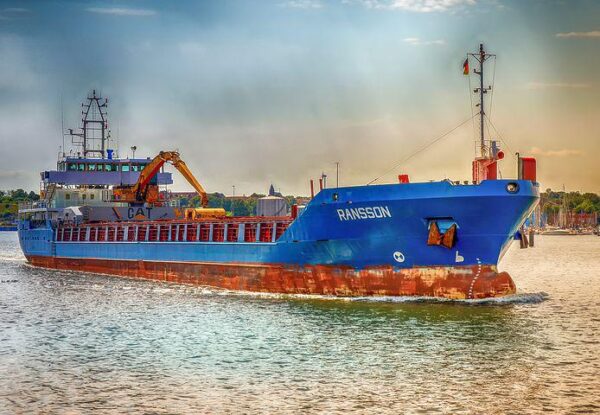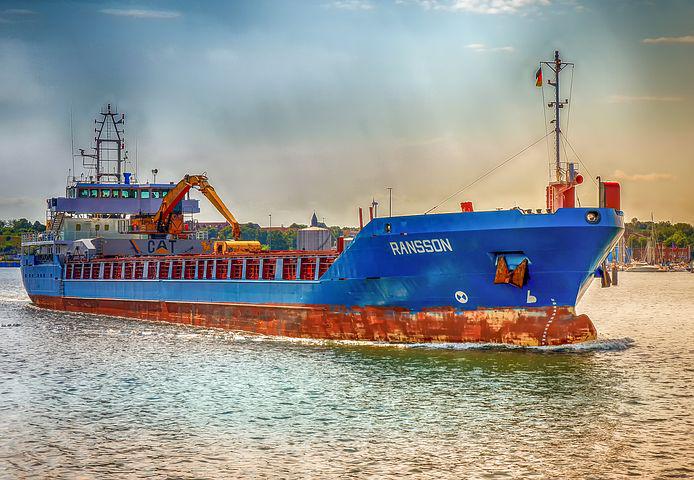Best Paying Jobs in Marine Transportation. The maritime transportation industry has always been a staple of the global economy. People have been transporting goods across the seas for thousands of years, but it wasn’t until the 20th century that ocean liners were introduced.
These massive cruise ships brought together people from all over the world and connected them with new cultures and ways of life. Today, however, there are many different kinds of jobs available in marine transportation from piloting ships across international waters to managing a shipping company’s logistics department.

Best Paying Jobs in Marine Transportation
Here is a list of some of the best paying jobs in this field:
1. Maritime pilot
Maritime pilots are licensed officers who ensure the safety of ships and their crews by navigating them through dangerous waters. They have years of experience navigating a wide range of boats through the thickest fog and roughest seas, so they’re in charge of a ship’s navigation and safety when it comes to getting from point A to point B.
A maritime pilot is part of the crew, but they aren’t necessarily an employee most maritime pilots work as independent contractors with agencies paid by shipping companies. The rate they charge depends on how long it takes them to guide a ship into port and how dangerous that voyage was.
2. Port Engineer
A port engineer is responsible for the maintenance of the ports. A port is an area where ships are loaded and unloaded with cargo, passengers, or both. The work of a port engineer includes ensuring that machinery used in loading and unloading cargoes functions properly, inspecting equipment to ensure it meets safety standards set by law, repairing damage caused by wear and tear and conducting regular maintenance checks on machinery as needed.
The responsibilities of a port engineer include:
- Performing inspections to ensure compliance with safety regulations
- Repairing damages caused by normal wear-and-tear
- Scheduling repairs if necessary
3. Marine Technician
A marine technician is a person who repairs and maintains marine vehicles and equipment. The job may require working on small vessels, such as sailboats and personal watercraft, or large vessels, such as cruise ships and oil tankers.
- What you’ll do: A marine technician may work in the engine room of a ship to repair machinery or electronics. On smaller vessels like yachts, he might be responsible for performing maintenance tasks such as changing oil filters or gaskets to ensure that no problems develop during use. He might also test whether electrical systems are functioning properly by examining voltages at various points within an engine control system before troubleshooting any problems that occur later down the road.
- Pay: This job pays well due to its high demand; median wages range between $60K-$80K per year depending on experience level (Bureau Of Labor Statistics). However since training programs are often expensive they pay less than people with similar skillsets but no formal education so if you have relevant experience but haven’t yet gotten your diploma then this could be an excellent opportunity for growth potential going forward!
4. Marine Surveyor
You may have heard the term “marine surveyor,” but did you know that it’s a job title? A marine surveyor is an independent professional who inspects and evaluates the condition of ships, their machinery, and equipment. They also inspect the condition of the cargo and the ship’s documents. Marine surveyors are responsible for determining the seaworthiness of a vessel and its equipment.
Being a marine surveyor can be rewarding work because there is always something new to learn about how boats operate and how they interact with each other on water (and sometimes in air), but it takes hard work too! It takes special training to become an expert in this field. You’ll need at least 3-5 years experience before you can even start looking into becoming certified as well as completing countless hours studying various types of vessels: commercial cargo ships; cruise liners; tankers; fishing boats; military aircraft carriers etc..
5. Ship Mate
Shipmates are the crew members who work on ships. The skills required to become a ship mate include good communication, teamwork and conflict resolution skills.
The salary of a ship mate depends on their experience and certifications. For example, an entry-level ship mate makes around $50k per year while experienced ones can earn up to $100k per year.
Shipping is one of the most profitable industries today because there’s always demand for goods shipped from one country to another. As such, shipping companies are paying their crew members very well! You may want to take up this job if you’re interested in marine transportation or want to travel around the world while working as part of a team that helps transport goods worldwide!
6. Ship captain
The captain is the highest rank in the maritime industry, and they are responsible for commanding a vessel safely. Captains are in charge of their crew and ship, making sure that everyone stays safe on board. As such, captains must have excellent leadership skills and be able to make quick decisions when necessary.
Captains must have extensive training from an accredited school or institution before becoming licensed as a captain. Once certified by an official licensing body like the United States Coast Guard (USCG), captains can work anywhere in all types of vessels ranging from small fishing boats to large cargo ships or passenger liners.
7. Marine engineer
The term “marine engineer” can be confusing because it encompasses many jobs in the maritime industry. But for our purposes, we’re talking about someone who designs, builds and maintains ships and other vessels. A marine engineer is an expert at building boats from scratch, which requires an understanding of everything from physics to architecture to shipbuilding materials and design standards. You may also hear this job title referred to as a naval architect or naval engineer.
A bachelor’s degree in marine engineering is required for most entry-level positions; however, some large companies will hire candidates with only an associate degree or military experience if they have equivalent experience working on small boats or ships under construction at an engineering firm or shipyard (or even if you’ve fixed your own boat!).
After graduating from college you’ll probably need at least four years’ worth of experience before you can begin working as a project engineer on larger vessels such as tankers or cruise ships; while there are no official certification requirements for marine engineers yet and indeed very few educational opportunities available right now many companies require their employees to pass examinations administered by professional organizations such as Nautical Institute (NI).
According to BLS data compiled by PayScale , the median annual salary reported by all respondents was $64K per year in 2017; however this figure cannot account for different levels of education obtained during one’s time spent studying towards becoming a full-fledged
8. Ship engineer
The role of a ship engineer is to oversee the operation and maintenance of all machinery on board. These mechanical systems include:
- Main engine
- Auxiliary engine
- Propulsion system (including propeller, shafts, and rudders)
- Generators (powering electrical equipment)
- Steering gear (rudder control)
Some specialized training may be required for this position depending on the size and type of vessel you will be working on. The job generally requires at least an associate degree in marine technology or engineering from an accredited school. In order to advance in your career as a ship engineer you can pursue additional certifications through organizations like the American Society Of Naval Engineers or The National Association Of Marine Surveyors.
Some positions may also require you to obtain credentials from local jurisdictions such as Coast Guard licensing or Customs bonded status. Salary ranges vary based on experience level but start around $50-60k per year at entry level positions to well over $100k annually for experienced engineers working offshore or with large vessels like cruise ships.
9. Naval architect
Naval architects are responsible for the design and construction of ships. They work with clients to determine the size, shape and structure of a ship or vessel.
Naval architects also design ships for passenger use, such as cruise ships and ferries. Naval architects are involved in all aspects of shipbuilding including:
- Shipyard layout planning
- Ship design calculations
- Construction planning and management
10. Ship mechanic
According to the Bureau of Labor Statistics (BLS), a ship mechanic is “an individual who repairs and maintains marine vessels.” The BLS also notes that they “may also be required to perform post-delivery inspections, maintenance and repair on all systems aboard a vessel.”
To become a ship mechanic, you’ll need at least an associate’s degree in marine technology from an accredited institution. The job market for the occupation is expected to grow 10% from 2016 through 2026, according to the BLS. Ship mechanics earned $52,890 per year as of May 2017; this is likely based on salary data from places like Indeed and Glassdoor.
11. Ship navigator
Navigators are responsible for safely and efficiently guiding ships or aircraft from one place to another. This is made possible through the use of maps and other navigation tools, as well as a thorough understanding of how the navigator’s chosen vessel works.
Navigation is perhaps best known for being an art form; however, it also requires extensive science knowledge in order to safely guide any ship through dangerous waters like those found at sea.
12. Ship pilot
A ship pilot is a licensed mariner who is responsible for the safe navigation of a vessel in or near the waters of a port. The ship pilot guides ships through storms and shallow waters, prevents ship collisions, and provides information about channels and bridges. The work can be physically demanding because it requires constant physical activity on board ship.
Although some pilots have extensive training in marine science, most take classes at maritime academies or colleges before receiving a certificate to become qualified as pilots. Most ships fly by radio with their current location so that shore-based traffic controllers can guide them safely into port.
13. Able Seaman
Able seaman is a junior rank in the deck department, responsible for carrying out duties in the deck department. Able seaman is a member of the deck department on merchant ships and naval ships.
14. Shipbuilding Engineer
A shipbuilding engineer is a professional who works to ensure that ships are safe and sound. This can mean performing structural inspections, carrying out repairs and maintenance on existing structures on board ships, or designing new structures to meet specific design specifications.
The duties of a shipbuilding engineer may also include conducting failure analysis after accidents involving vessels such as oil tankers or cruise liners. In order to perform these tasks effectively, it’s important that you have extensive knowledge of both marine construction materials (such as steel) as well as various types of equipment used on board ships (such as winches).
You should be able to communicate well with other members of your team and be comfortable working under pressure while dealing with potentially dangerous situations at sea where lives might be at risk if something goes wrong with a certain piece of equipment or structure onboard your vessel.
15. Port engineer
A port engineer is responsible for the overall maintenance, planning and operations of a port. The responsibilities of this job include:
- Maintaining ports by providing engineering services and keeping records of all activity at the ports
- Assessing cargo’s safety, security and environmental impact
- Developing plans for future development of the port
16. Vessel Operator
Vessel operators are responsible for the daily operation of a vessel. They’re also responsible for the safe and efficient running of the vessel, as well as ensuring that all crew members are fit to work.
Vessel operators are required to be able to understand technical details about a vessel, including its machinery and systems. They should also have excellent communication skills and be able to work in a team environment.
Vessel operators must stay up-to-date with maritime regulations so they can ensure their vessels meet all relevant standards when traveling through international waters.
17. Ships’ security officer
Security officers work on board ships to ensure the safety of the vessel and its crew. A security officer also ensures that all company policies are followed. They may also be called upon to provide first aid or medical assistance in case of an emergency. The duties of a security officer include:
- Inspecting cargo and passengers for dangerous items such as firearms, explosives or drugs before they are allowed on board; this requires screening them using x-ray machines
- Taking part in searches when necessary
- Reporting any suspicious activity immediately
18. Shipping Broker
Shipping freight brokers are the people who help companies find the best shipping rates for their goods. They are responsible for negotiating the best rates for their clients, and they also find the best shipping route for their clients. This means that a shipping freight broker must be knowledgeable about all aspects of marine transportation, from trucking down to ocean carriers.
The average salary for a shipping freight broker is $60,000 per year (though you can make more if you’re highly skilled). That’s not bad compared to other jobs on this list!
19. Manager of the Marine Service Department
As manager of the Marine Service Department, you’ll oversee all marine operations at your port. You’ll be responsible for overseeing everything from the operation of a facility’s aids to navigation to the movement and storage of goods within port facilities.
This role is a great fit if you’re interested in logistics and supply chain management, as it involves managing complex operations that affect multiple processes at once.
The Marine Service Department Manager will also help coordinate activities such as:
- Traffic control within port facilities
- Ship berthing and unloading procedures
- Port pilotage services (steering ships through waterways)
20. Shipping Freight Broker
A shipping freight broker is responsible for the sale of goods or services. This can include anything from transporting cargo by air, rail, boat and truck. They are involved with the management of a team that coordinates all aspects of transportation logistics to ensure that shipments arrive on time. They determine when a shipment should leave, how it will be transported and what fees will be charged for each step of the process.
Conclusion
The shipping industry is a great place to work. It offers a lot of opportunity for people who want to make a career out of their passion for the water and sailing. The pay can be good, but it depends on what type of job you want as well as how much experience you have.
If you are looking at becoming an officer on board an ocean liner or other large vessel then expect to earn around $80k per year while working with cruise lines might get you up to $40k per year if hired directly out of college without any prior experience in the field (source: SeaOnline).

